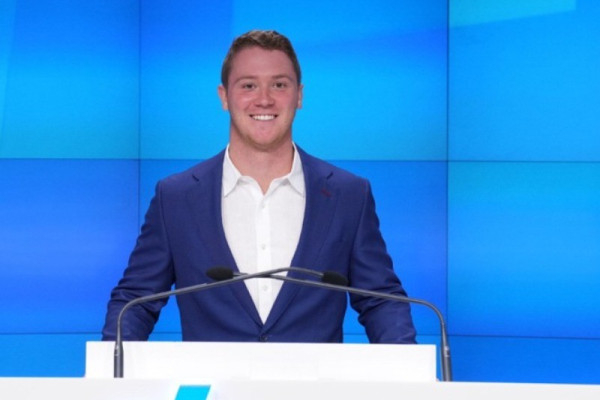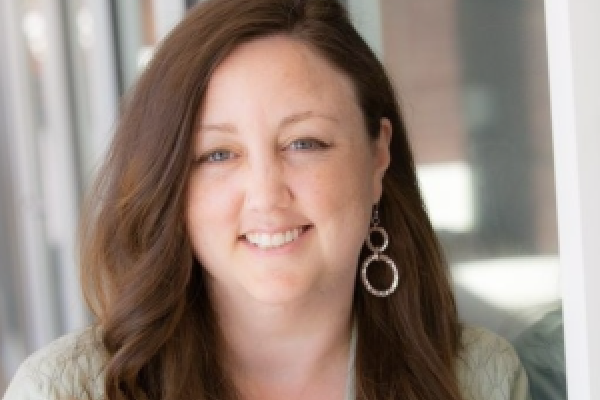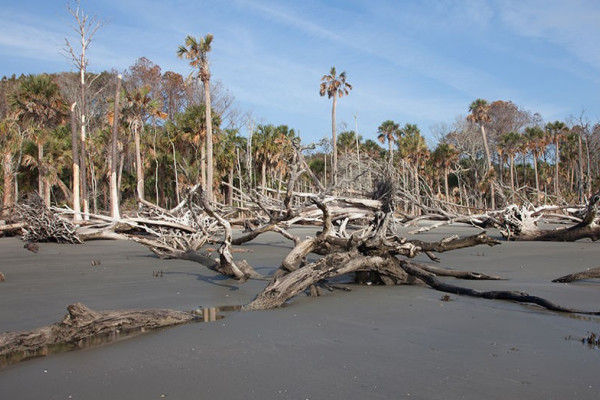
Why this nonprofit strategist returned to grad school for data science

Camisha Belle
Education
M.S. in Data Science 2026, University of Virginia
B.S. in Applied Mathematics 1997, Norfolk State University
Hometown
Newport News, Virginia
Employment
RKD Group, Senior Manager, Research and Analytics (Hampton Roads, VA)
ADJ Equitech, Co-Founder (Washington, D.C.)
For Camisha Belle, the path to data science has been anything but linear. With a career spanning more than two decades, she has applied her foundation in biostatistics to drive impact across both the nonprofit and corporate sectors. Now a student in the M.S. in Data Science (MSDS) online program at the University of Virginia – and co-founder of ADJ Equitech – Belle brings deep real-world experience and a clear vision for how technology can advance social good.
In this Q&A, Belle reflects on her journey from applied mathematics to data-powered storytelling, shares what inspires her most about graduate school, and explains why she believes formal education remains essential – especially for those committed to making a difference. She also lets us in on a few fun facts and future dreams. Read on to learn from Belle’s insight, passion, and purpose-driven approach to data science.
Q: Tell us about your path to Data Science.
My journey began with an undergraduate foundation in biostatistics, reinforced through multiple internships that gave me hands-on experience with data analysis. For decades, I applied these analytical skills in market and marketing research across various organizations, primarily in the nonprofit sector. While serving in marketing analytics roles, I frequently collaborated with technical teams to implement business solutions. These experiences sparked my curiosity about the deeper technical reasoning behind their recommendations.
As AI technologies entered the mainstream, I recognized many "innovative" approaches as enhanced versions of proven statistical methods supercharged with greater speed, capacity, and capabilities. This realization motivated me to expand my expertise beyond traditional analytics.
Q: What do you hope to do with an M.S. in Data Science degree?
I hope to continue empowering nonprofits through data science to deepen constituent, client, and donor engagement. Specifically, I will leverage data from myriad sources, including donor histories, program outcomes, and digital interactions, to uncover insights, optimize outreach strategies, and measure impact more effectively.
By applying advanced analytics, machine learning, and predictive modeling, I aim to help organizations make data-driven decisions that enhance their missions, foster long-term relationships, and maximize social good in equitable and impactful ways.
Ultimately, I want to bridge the gap between raw data and meaningful storytelling, enabling nonprofits to communicate their successes clearly, secure sustainable funding, and create lasting change.
Q: What excited you about the MSDS program?
Aside from a rigorous program from a top-rated university being available online in a format friendly to working professionals, I was most excited to learn about building LLMs and working on the capstone project. Watching the class of 2025 present their capstone projects – which provided real-world solutions to those doing admirable work in fields such as medicine, environmental studies, and government – added fuel to my fire.
Q: What advice would you give to someone considering a Master’s in Data Science?
There is much debate these days about formal education and whether it is necessary for success. As someone who earned my bachelor's degree almost thirty years ago, I know it provided the foundation to sustain my career through life's inevitable ebbs and flows.
Having pursued a master's in data science, I see the value of a top-tier program more clearly. It equips you with the deep, structured knowledge needed to integrate computer science, statistics, mathematics, and information science. I could not have mastered this through professional training, boot camps, or autodidacticism alone, especially while balancing a career and family.
This degree program has sharpened my ability to manage, optimize, and analyze data with greater efficiency and statistical rigor. Education is about more than credentials; it is about building expertise that lasts.
Q: What are some fun facts about yourself?
I enjoy logic puzzles, traveling, and hiking. One day, I hope to explore U.S. Route 66 in an RV.






